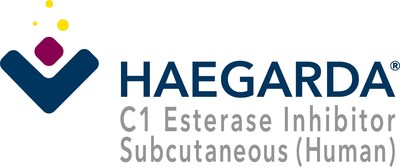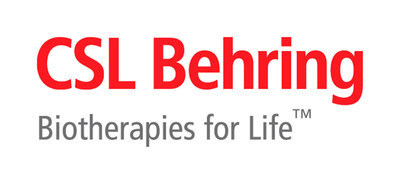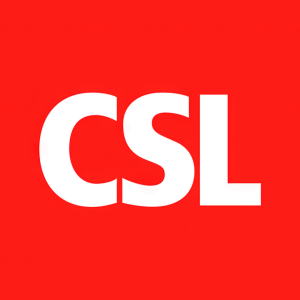U.S. Food and Drug Administration Approves HAEGARDA® (C1 Esterase Inhibitor Subcutaneous [Human]) for Prevention of Hereditary Angioedema (HAE) Attacks in Pediatric Patients
CSL Behring announced FDA approval for HAEGARDA® (C1 Esterase Inhibitor Subcutaneous) to prevent hereditary angioedema (HAE) attacks in patients aged 6 and older. HAE is a rare genetic disorder affecting about 1 in 50,000 people in the U.S. HAEGARDA, first approved in 2017, now offers a subcutaneous treatment option that reduces attack frequency by an average of 95%. The approval is based on successful results from the COMPACT trials, including safety data for pregnant women. This expands treatment options for pediatric patients, addressing unmet medical needs in the HAE community.
- FDA approval for HAEGARDA expands treatment to pediatric patients aged 6 and older.
- HAEGARDA reduces HAE attack frequency by a median of 95% compared to placebo.
- Safety data included for HAEGARDA use in pregnant women, reporting no complications.
- None.
KING OF PRUSSIA, Pa., Sept. 28, 2020 /PRNewswire/ -- CSL Behring, a global biotherapeutics leader, announced today that the U.S. Food and Drug Administration (FDA) has approved an expanded indication for HAEGARDA® (C1 Esterase Inhibitor Subcutaneous [Human]) for routine prophylaxis to prevent hereditary angioedema (HAE) attacks in patients 6 years of age and older. A rare, genetic and potentially life-threatening condition, HAE affects about 1 in 50,000 people in the United States1, causing painful, potentially debilitating and unpredictable episodes of swelling of the abdomen, larynx, face and extremities, among other areas of the body.2 Children have a
"Since 2017, HAEGARDA has been a trusted and effective option for patients seeking to prevent HAE attacks, but until now preventative options for younger children living with the condition have been limited," said Debra Bensen-Kennedy, MD, Vice President, North America Medical Affairs, CSL Behring. "With this expanded indication, we are able to offer pediatric patients as young as 6 years of age, an effective, preventative subcutaneous solution and deliver on our promise of addressing the unmet needs of people living with HAE."
The latest FDA approval was based on results from two CSL Behring-sponsored COMPACT (Clinical Study for Optimal Management of Preventing Angioedema with Low-Volume Subcutaneous C1-Inhibitor Replacement Therapy) trials: COMPACT Pivotal Study and COMPACT Open Label Extension (OLE) Study. COMPACT, an international, prospective multi-center, randomized, double-blind, placebo-controlled Phase 3 pivotal study, included six subjects aged 17 years or younger with symptomatic HAE. In the COMPACT pivotal study, HAEGARDA, at the FDA approved dose of 60 IU/kg, reduced the number of HAE attacks by a median of
"The FDA's approval of HAEGARDA for preventing HAE attacks in children six years of age and older represents a major stride in filling an unmet medical need. The U.S. Hereditary Angioedema Association is excited that there is now a subcutaneous prophylaxis option for the younger members of our HAE community and the families that care for them," said Anthony J. Castaldo, U.S. HAEA President & Chief Executive Officer.
The new label now includes results from the randomized, open-label, active treatment controlled study regarding four patients who became pregnant during the study, and received treatment until pregnancy was identified. These patients ranged in age from 19 to 32 and received C1-INH (S.C. administration). Patients received HAEGARDA for 4 – 8 weeks (9 - 15 doses) during the first trimester. As noted, these women reported no complications during delivery and all women delivered healthy babies.5, 6
"As the mother of a young patient and an active member of the HAE community, this news brings tears to my eyes as I am reminded of our struggles and strides over the years," says Lisa Chacon, HAE patient advocate. "It warms my heart to know that so many children will now have access to this convenient, preventative therapy."
CSL Behring is driven by its promise to save and improve the lives of HAE patients and their families and is committed to helping patients get access to its innovative therapies, regardless of their financial situation. For more information about HAEGARDA, including the U.S. Prescribing Information, visit www.HAEGARDA.com.
About HAEGARDA® (C1 Esterase Inhibitor Subcutaneous [Human])
HAEGARDA is a self-administered, plasma-derived concentrate of C1-esterase inhibitor and the only subcutaneous therapy approved in the United States for routine prophylaxis to prevent HAE attack in patients 6 years of age and older. HAEGARDA targets the root cause of HAE by replacing deficient or dysfunctional C1-INH, restoring functional C1-INH levels to above 40 percent of normal levels, which is proposed to reduce the risk of HAE attacks. HAEGARDA is dosed individually based on body weight so that each patient can achieve functional C1-INH levels.
About Hereditary Angioedema
A rare, genetic and potentially life-threatening condition, HAE causes painful, debilitating and unpredictable episodes of swelling of the abdomen, larynx, face and extremities, among other areas of the body. HAE is one of two forms of bradykinin-mediated angioedema, the other being nonhereditary or acquired angioedema. HAE is caused by deficient or dysfunctional C1-INH, a key protein in the body that controls swelling. The defect with C1-INH lies within a person's genetic code, which is why HAE runs in families. HAE is classified as either type I, type II or HAE with normal C1-INH levels.
About CSL Behring
CSL Behring is a global biotherapeutics leader driven by its promise to save lives. Focused on serving patients' needs by using the latest technologies, we develop and deliver innovative therapies that are used to treat coagulation disorders, primary immune deficiencies, hereditary angioedema, respiratory disease, and neurological disorders. The company's products are also used in cardiac surgery, burn treatment and to prevent hemolytic disease of the newborn.
CSL Behring operates one of the world's largest plasma collection networks, CSL Plasma. The parent company, CSL Limited (ASX:CSL;USOTC:CSLLY), headquartered in Melbourne, Australia, employs more than 27,000 people, and delivers its life-saving therapies to people in more than 100 countries. For inspiring stories about the promise of biotechnology, visit Vita CSLBehring.com/vita and follow us on Twitter.com/CSLBehring.
INDICATIONS AND IMPORTANT SAFETY INFORMATION ABOUT HAEGARDA
INDICATIONS
HAEGARDA®, C1 Esterase Inhibitor Subcutaneous (Human), is a plasma-derived concentrate of C1 Esterase Inhibitor (C1-INH) indicated for routine prophylaxis to prevent Hereditary Angioedema (HAE) attacks in patients 6 years of age and older. HAEGARDA is for subcutaneous use after reconstitution only.
IMPORTANT SAFETY INFORMATION
HAEGARDA is contraindicated in patients with a history of life-threatening hypersensitivity reactions, including anaphylaxis, to C1-INH preparations or their excipients.
Severe hypersensitivity reactions to HAEGARDA could occur. In such cases, discontinue administration and institute appropriate treatment. Epinephrine should be immediately available to treat hypersensitivity reactions.
At the recommended subcutaneous dose of HAEGARDA, no causal relationship to thromboembolic events (TEs) has been established. However, TEs have been reported with intravenous administration of C1-INH products, usually at high doses.
In clinical trials, adverse reactions observed in more than
HAEGARDA is derived from human plasma. The risk of transmission of infectious agents, including viruses and, theoretically, the Creutzfeldt-Jakob disease (CJD) agent and its variant (vCJD), cannot be completely eliminated.
Full prescribing information can be found at www.HAEGARDA.com.
To report SUSPECTED ADVERSE REACTIONS, contact the CSL Behring Pharmacovigilance Department at 1-866-915-6958 or FDA at 1-800-FDA-1088 or www.fda.gov/medwatch.
- Lumry WR. Am J Manag Care. 2013;19:S103-S110)
- US Hereditary Angioedema Association. Retrieved on Aug 24, 2020, from https://www.haea.org/
- COMPACT: Longhurst H, Cicardi M, Craig T, et al. Prevention of hereditary angioedema attacks with a subcutaneous C1 inhibitor. N Engl J Med. 2017;376:1131-40.
- Manning M, Caballero T, Hussain I, et al. Long-term efficacy of subcutaneous C1-inhibitor in pediatric patients with hereditary angioedema. Poster presented at: 2018 Annual Scientific Meeting of the American College of Allergy, Asthma and Immunology; November 15-19, 2018; Seattle WA.
- COMPACT OLE: Craig T, Zuraw B, Longhurst H, et al. Long-term outcomes with subcutaneous C1-inhibitor replacement therapy for prevention of hereditary angioedema attacks. J Allergy Clin Immunol Pract. 2019;7(6):1793-1802.
- Levy D, Farkas H, Reidel M, et al. Long-term efficacy and safety of subcutaneous C1-inhibitor in women with hereditary angioedema: subgroup analysis from an open-label extension of a Phase 3 trial. Allergy, Asthma Clin. Immunology; 2020; 16(8):doi: https://doi.org/10.1186/s13223-020-0409-3.
![]() View original content to download multimedia:http://www.prnewswire.com/news-releases/us-food-and-drug-administration-approves-haegarda-c1-esterase-inhibitor-subcutaneous-human-for-prevention-of-hereditary-angioedema-hae-attacks-in-pediatric-patients-301138682.html
View original content to download multimedia:http://www.prnewswire.com/news-releases/us-food-and-drug-administration-approves-haegarda-c1-esterase-inhibitor-subcutaneous-human-for-prevention-of-hereditary-angioedema-hae-attacks-in-pediatric-patients-301138682.html
SOURCE CSL Behring
FAQ
What recent FDA approval did CSL Behring receive for HAEGARDA?
How effective is HAEGARDA in reducing hereditary angioedema attacks?
What is the significance of the HAEGARDA approval for pediatric patients?
What trials supported the approval of HAEGARDA?









